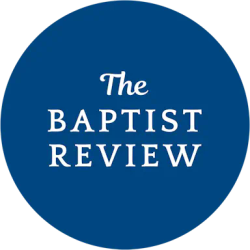I am ashamed to confess that I have left more than one conversation gospel-less, even this week. In the moment, although I was stirred by the Holy Spirit with the opportunity to share the gospel, I convinced myself that we did not have the kind of relationship that was needed for that kind of spiritual conversation. Or our time together was too short. Or there was too much noise. Or too much baggage. Or whatever. Besides, I was busy doing good, spiritual things. So, another appointed moment faded into missed opportunity. Sound familiar?
In a recent study, Barna Research reported that more than sixty percent of practicing Christians prefer to have “spiritual conversations” with “a friend.” To be sure, holding gospel conversations with lost friends is important. But the author pushes further on the necessity of friendship in gospel conversation:
“One implication of this research is the importance of Christians being friends with non-Christians. Not only are Christians called to ‘love our neighbors,’ but developing trusting friendships with our neighbors is an important precondition for having spiritual conversations. We have to gain a hearing before being able to share our faith… trust is a prerequisite for spiritual conversations.”
Read that again. Trusted friendship “is an important precondition . . . a prerequisite” to sharing the gospel. Are we placing too much importance on building relational equity when it comes to personal evangelistic witness? I have no problem with the author’s exhortation for Christians like me to be more intentional about building friendships with non-Christians (to be honest, this is a sobering and timely reminder for me). Neither would I question the value of trusted friendship in the context of gospel-sharing. But friendship as a “precondition” for sharing the gospel? As a necessary “prerequisite” to “gain a hearing before being able to share our faith”?
Does the gospel not have the power to win its own hearing?
Throughout the pages of the Bible, the words of God thunder with majestic roar (Psalm 18:13), whisper in solemn stillness (1 Kings 19:12), inscribe with stone-cutting authority (Deuteronomy 9:10), and dissect with surgical precision (Hebrews 4:12). Jesus rebuked the wind, and it hushed (Mark 4:39). He blessed the loaves, and they multiplied (Luke 9:16). He spoke to illness, and it left the body (Matthew 8:13). He admonished demons, and they fled (Luke 8:32). Wherever and whenever God speaks, power and authority are immediately realized.
If the words of the gospel are life-giving truth, revealed in the Bible and attested by the witness of faithful men and women through the ages, shouldn’t we have confidence that the power of that word can pierce through the awkwardness of any moment? Shouldn’t we believe that the Word of God is powerful to affect its purpose in any and every circumstance? Shouldn’t we have more confidence in the simple gospel message than in our ability to bank and eventually draw upon relational equity with friends?
“I am not ashamed of the gospel,” declared the most renown missionary-evangelist of his day, “because it is the power of God for salvation” (Romans 1:16). The gospel doesn’t just have power. The gospel is power. Meaningful relationships have no power to offer the gospel. Rather, it is the gospel that offers power and purpose to meaningful relationships. Sure, the power of God can often ride the backs of healthy relationships, and it is a gift from God that it would! But it doesn’t need to. It doesn’t have to. The gospel is powerful and effective, all on its own.
In Acts 8, had Philip strategically built relational equity with the Ethiopian eunuch before sharing the gospel with him? No. To the contrary, the Spirit of God told him to go, so he went and shared the gospel. The simple message of salvation by grace through faith in Jesus Christ raised that man from death to life at the moment of his belief. Power.
In Acts 11, does the narrative allow for the strategic building of relationships over time before scattered Judean believers proclaimed the good news about Jesus to the inhabitants of those faraway lands? No. Rather, they went, “proclaiming the good news about the Lord Jesus. The Lord’s hand was with them, and a large number who believed turned to the Lord” (Ac. 11:20–21). Power.
In Acts 16, had Paul invested any length of time into building relational capital with Lydia before she heard him speak the simple gospel message on the banks of the river? No. By contrast, “The Lord opened her heart to respond to what Paul was saying,” then “she and her household were baptized” (Ac. 16:14–15). Power.
Much could be said about the New Testament’s record of some who came to faith in Christ on the shoulders of meaningful relationships built over time. It is not my intent to disregard evangelism done in the context of meaningful relationship. I do disagree, however, with the increasingly popular notion that relational equity is necessary for—or is in some way a “prerequisite” to—the faithful and effective sharing of the gospel with non-Christians.
Relational equity is not preconditional to effective gospel witness. Certainly, the trust that comes along with seasoned, healthy relationships can build effective bridges to the gospel. But we don’t make a way for the gospel. The gospel makes its own way, and we are invited into the joy of that moment through obedient and consistent, faith-filled witness.
The trendy argument that healthy relationships are necessary for effective evangelism is ad populum, not ad veritatem. It’s what we want to hear, not what we need to hear. I am thankful for those who put much effort into statistical Christian research with an eye on strengthening churches toward effective evangelistic growth. But as the Bible teaches and history demonstrates, as important as healthy relationships are to the human experience, relational equity is not a prerequisite to effective gospel witness.
The gospel doesn’t need our relational influence. It just needs our faithful witness. Gospel power transcends relational equity.
Editor's Note: As a part of its commitment to fostering conversation within the Southern Baptist Convention, the Baptist Review may publish editorials that espouse viewpoints that are not necessarily shared by the TBR team or other contributors. We welcome submissions for responses and rebuttals to any editorials as we seek to host meaningful conversations about the present and future of our convention.


